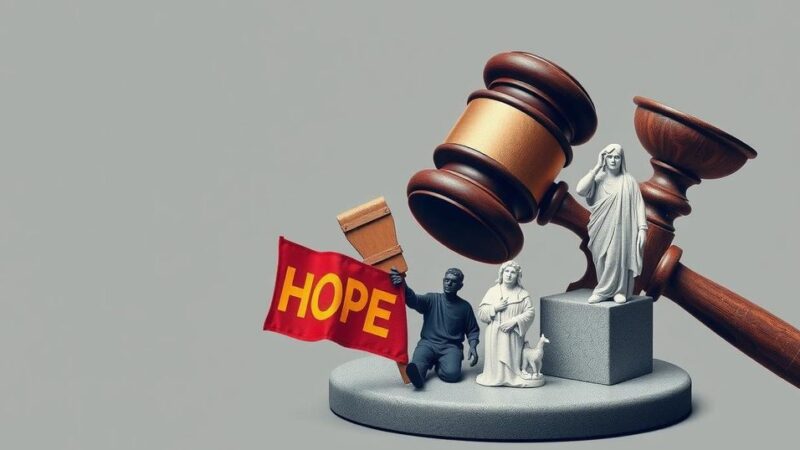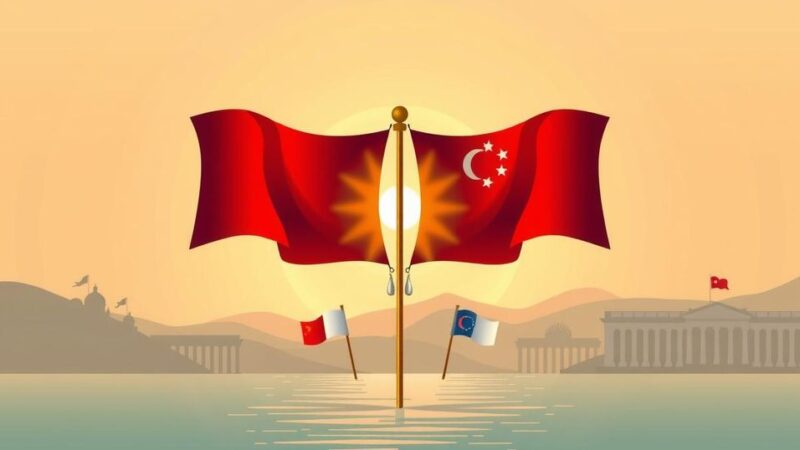In Venezuela, President Nicolas Maduro’s government has offered a $100,000 reward for information on exiled opposition candidate Edmundo Gonzalez, ahead of Maduro’s third presidential inauguration. The opposition contests the legitimacy of his election win, claiming fraud. Human rights advocates criticize Maduro’s administration for violence against demonstrators and lack of transparency in electoral proceedings, as international tensions with Argentina rise due to separate accusations against the Venezuelan government.
The Venezuelan government, led by President Nicolas Maduro, has recently offered a $100,000 reward for information regarding the whereabouts of Edmundo Gonzalez, an exiled opposition candidate. This announcement came just days before Maduro’s inauguration for a third term, following a contentious presidential election. In the aftermath of the election, which Maduro’s administration allegedly won without full transparency, Gonzalez had been issued an arrest warrant.
In a social media post, Venezuela’s Scientific, Criminal and Forensic Investigations Agency presented Gonzalez’s image in a “wanted” style, signaling the government’s pursuit of the opposition leader. The opposition has contested Maduro’s victory, claiming election fraud and presenting evidence suggesting Gonzalez decisively won the election. Call for transparency in election results has continued from regional leaders and human rights advocates alike.
Following these events, Gonzalez departed for Spain and has reportedly been en route to Buenos Aires, Argentina. His return coincides with Maduro’s upcoming inauguration on January 10, raising concerns regarding civil liberties in the country. The United Nations and other organizations have criticized the Maduro government for rampant human rights violations, including arbitrary arrests and torture, particularly post-election where nearly 2,000 arrests were made and 23 individuals lost their lives.
As Maduro’s third inauguration approaches, UN human rights experts issued a statement urging the authorities to respect civil liberties, emphasizing that citizens must be able to protest and express themselves freely without fear of repercussions. Despite facing isolation and criticism for his governance, Maduro has yet to provide requested electoral data to validate his claimed victory, further deepening his rift with both domestic and international audiences.
Moreover, the strained relations with Argentina became evident after President Javier Milei’s administration lodged a complaint with the International Criminal Court, accusing Venezuela of enforced disappearance related to the arrest of an Argentinian security member. This incident illustrates the ongoing tensions and the serious implications of the current political climate in Venezuela, as the government continues to focus on opposition figures while international scrutiny intensifies.
The situation in Venezuela has escalated significantly following the contested presidential election, which led to widespread allegations of electoral fraud and subsequent protests. The Maduro government has faced mounting criticism for its handling of dissent and has been accused of various human rights violations, contributing to growing isolation on the international stage. Advocacy groups and foreign entities have called for the protection of civil liberties, especially as the political landscape continues to be rife with tension.
The Venezuelan government’s decision to offer a substantial reward for Edmundo Gonzalez’s location highlights the ongoing political strife and repression under President Maduro’s regime. The lack of transparency regarding election results and the government’s actions against opposition members has drawn significant international criticism. Calls for respect for civil liberties are crucial at this juncture, as the nation approaches Maduro’s inauguration amid heightened tensions and scrutiny.
Original Source: www.aljazeera.com







